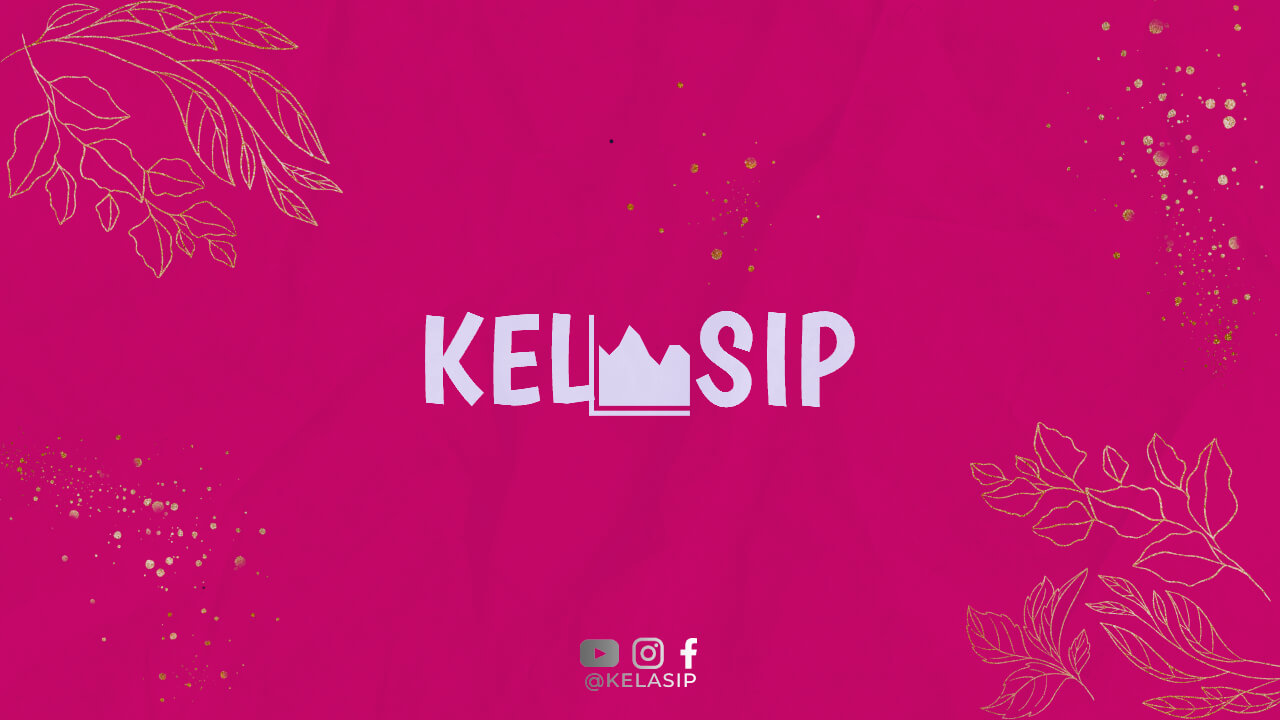Aspiring to pursue higher education often comes with the challenge of navigating through the admissions process. University admission assessments play a crucial role in determining the success of an applicant. In this blog article, we will provide a comprehensive guide to help you navigate these assessments with confidence and increase your chances of triumphing over the competition.
With the aim of providing a detailed roadmap, this article will cover various aspects of university admission assessments, including essential tips, strategies, and resources to excel. From standardized tests and personal statements to interviews and recommendation letters, our guide will walk you through the entire process, ensuring that you are well-prepared and equipped to showcase your abilities and potential.
Understanding University Admission Assessments
University admission assessments come in different forms, such as standardized tests, personal statements, interviews, and recommendation letters. Each assessment serves a unique purpose in evaluating your suitability for admission. It is crucial to understand the significance of these assessments to effectively prepare and present yourself as a strong candidate.
The Significance of University Admission Assessments
University admission assessments are designed to evaluate various aspects of your academic abilities, personal qualities, and potential. They help admissions committees gain a comprehensive understanding of your suitability for their institution. These assessments provide a level playing field for all applicants and allow universities to select candidates who are most likely to succeed and contribute positively to their academic community.
Types of University Admission Assessments
University admission assessments can include standardized tests, personal statements, interviews, recommendation letters, and additional requirements. Standardized tests, such as the SAT, ACT, or GRE, measure your academic aptitude and readiness for college-level work. Personal statements provide an opportunity to showcase your unique qualities, experiences, and aspirations. Interviews allow universities to assess your communication skills, personality, and fit for their institution. Recommendation letters provide insights into your character and academic abilities from individuals who know you well. Additional requirements, such as portfolios, auditions, or essays, may be required for specific programs or scholarships.
Preparing for Standardized Tests
Standardized tests are a crucial component of university admission assessments. They provide an objective measure of your academic abilities and potential. Adequate preparation is essential to maximize your performance in these tests and increase your chances of admission.
Choosing the Right Test
Before starting your test preparation journey, it is important to research and understand the standardized tests required by the universities you are interested in. Different universities may have specific test requirements, so ensure that you choose the right test(s) accordingly. Consider factors such as test format, content, and scoring to make an informed decision.
Creating a Study Plan
Developing a study plan is crucial for effective test preparation. Start by assessing your strengths and weaknesses in the test content areas. Allocate more time to areas where you need improvement, while maintaining a balance with your strengths. Break down your study plan into smaller, manageable sections and set realistic goals for each study session.
Utilizing Test Prep Resources
There are various resources available to help you prepare for standardized tests. Online platforms, practice books, and tutoring services can offer valuable guidance and practice materials. Utilize these resources to become familiar with the test format, practice sample questions, and learn effective test-taking strategies.
Mock Tests and Timed Practice
Mock tests and timed practice are integral to test preparation. They simulate the actual testing environment and help you gauge your progress. Take full-length practice tests under timed conditions to improve your pacing and build endurance. Analyze your performance, identify areas for improvement, and adjust your study plan accordingly.
Reviewing and Revising
Regularly review the concepts, formulas, and strategies covered in the test. Create concise study notes or flashcards to aid your revision process. Focus on understanding the underlying principles and practicing their application. Regular revision will help reinforce your knowledge and improve your retention of key concepts.
Crafting a Compelling Personal Statement
Your personal statement is an opportunity to showcase your unique qualities, experiences, and aspirations to the admissions committee. A well-crafted personal statement can set you apart from other applicants and leave a lasting impression.
Reflecting on Personal Experiences
Begin by reflecting on your personal experiences, achievements, challenges, and moments that have shaped your journey. Identify key themes or values that resonate with your academic and career aspirations. Consider how these experiences have influenced your personal growth and shaped your perspective on the world.
Structuring Your Personal Statement
A well-structured personal statement should have a clear introduction, body, and conclusion. Start with an engaging hook or anecdote to capture the reader’s attention. In the body paragraphs, provide specific examples and elaborate on how your experiences have impacted your personal and academic development. Conclude by summarizing your main points and reaffirming your passion for your chosen field of study.
Showcasing Your Unique Qualities
Your personal statement should highlight your unique qualities and attributes that make you a standout candidate. Focus on your strengths, skills, and personal characteristics that align with the values and expectations of the university you are applying to. Use specific examples to demonstrate how these qualities have positively influenced your academic or personal life.
Being Genuine and Authentic
Avoid the temptation to write what you think the admissions committee wants to hear. Be genuine and authentic in presenting your true self. Admissions officers appreciate honesty and a unique voice. Share your personal story and aspirations in your own words, showing your passion and commitment to your chosen field of study.
Proofreading and Editing
Once you have written your personal statement, proofread it thoroughly for grammar, spelling, and punctuation errors. Ensure that your ideas flow logically and coherently. Seek feedback from trusted mentors, teachers, or family members to gain different perspectives and make necessary revisions. Edit your personal statement multiple times until you are confident that it represents your best work.
Excelling in the Interview Process
University interviews provide an opportunity for admissions committees to evaluate your communication skills, personality, and fit for their institution. With adequate preparation and practice, you can excel in the interview process and make a lasting impression.
Researching the University and Program
Prior to your interview, research the university and the specific program you are applying to. Familiarize yourself with the institution’s mission, values, and academic offerings. Understand the program’s curriculum, faculty, and any recent achievements or initiatives. This knowledge will demonstrate your genuine interest in the university and allow you to ask insightful questions during the interview.
Preparing Responses to Common Questions
While you cannot predict every question that will be asked during the interview, you can prepare responses to common interview questions. Practice articulating your academic and career goals, experiences that have shaped you, and any challenges you have overcome. Use the STAR (Situation, Task, Action, Result) method to structure your responses and provide specific examples.
Showcasing Your Passion and Personality
During the interview, it is important to showcase your passion for your chosen field of study and your genuine personality. Engage in thoughtful conversations with the interviewer, demonstrating your enthusiasm and curiosity. Share personal anecdotes or experiences that highlight your dedication to your academic pursuits and your ability to contribute positively to the university community.
Demonstrating Your Knowledge and Preparedness
Take the opportunity to demonstrate your knowledge and preparedness for the program. Discuss relevant coursework, research projects, or extracurricular activities that showcase your intellectual curiosity and initiative. Be prepared to discuss current trends or developments in your field of interest and how they relate to your academic and career goals.
Asking Thoughtful Questions
At the end of the interview, you will usually be given the opportunity to ask questions. Prepare a list of thoughtful questions that demonstrate your interest in the program and your desire to learn more. Ask about research opportunities, internship placements, or any specific initiatives or resources that align with your academic and career aspirations.
Securing Stellar Recommendation Letters
Strong recommendation letters provide valuable insights into your character, academic abilities, and potential. Building strong relationships with potential recommenders and providing them with the necessary information is crucial to obtaining stellar recommendation letters.
Selecting the Right Recommenders
When choosing recommenders, consider individuals who know you well and can provide detailed and specific insights into your abilities and potential. Ideally, select recommenders who have worked with you in an academic or professional setting and are familiar with your strengths, achievements, and potential for growth.
Building Strong Relationships
Building strong relationships with your potential recommenders is essential. Attend office hours, engage in meaningful discussions, and seek guidance from them. Show your commitment to your academic pursuits and your desire to learn from their expertise. This will help them form a positive impression of you and write a strong recommendation letter.
Providing Relevant Information
When requesting a recommendation letter, provide your recommenders with relevant information to assist them in writing a detailed and personalized letter. Share your academic goals, achievements, and experiences that you would like them to highlight. Provide them with your resume, personal statement, and anyadditional materials that can provide more context about your accomplishments and aspirations. This will help your recommenders tailor their letters to showcase your unique qualities and strengths.
Follow-Up and Reminders
After requesting recommendation letters, it is important to follow up with your recommenders to ensure they have all the necessary information and deadlines. Gentle reminders closer to the deadline can help ensure that the letters are submitted on time. Express your gratitude for their support and keep them updated on your application progress.
Thanking Your Recommenders
Once the recommendation letters have been submitted, it is essential to express your gratitude to your recommenders. A handwritten thank-you note or a sincere email acknowledging their time and effort can go a long way in maintaining a positive relationship. Keep your recommenders informed about your admission decisions and thank them again for their support.
Showcasing Extracurricular Achievements
Extracurricular achievements play a significant role in demonstrating your well-roundedness and ability to contribute to the university community outside of the classroom. Effectively showcasing these achievements can enhance your application and set you apart from other applicants.
Identifying Your Extracurricular Involvement
Begin by identifying the extracurricular activities in which you have been involved. These can include clubs, sports teams, volunteer work, leadership roles, or community service. Reflect on the skills, experiences, and personal growth you have gained from these activities.
Highlighting Leadership Roles and Initiatives
If you have held leadership roles within your extracurricular activities, emphasize them in your application. Discuss the responsibilities you undertook, the impact you made, and any initiatives you spearheaded. Highlight your ability to lead, collaborate, and make a positive difference within the organization or community.
Emphasizing Achievements and Awards
If you have received any awards, honors, or recognition for your extracurricular achievements, make sure to highlight them in your application. Discuss the specific criteria for receiving these accolades and the significance they hold. Emphasize how these achievements demonstrate your dedication, commitment, and excellence in your chosen activities.
Connecting Extracurricular Activities to Your Academic Goals
When discussing your extracurricular activities, make connections to your academic goals and chosen field of study. Explain how these activities have shaped your interests, provided practical experiences, or reinforced your passion for a particular subject. Highlight how your extracurricular involvement aligns with your future aspirations and demonstrates your commitment to your chosen field.
Providing Evidence of Impact
Whenever possible, provide evidence of the impact you have made through your extracurricular activities. This can include quantifiable metrics, testimonials from individuals you have worked with or helped, or documentation of successful projects or initiatives. Demonstrating the positive outcomes of your involvement will strengthen your application and showcase your ability to make a difference.
Some universities may have additional admission requirements or specific assessments for certain programs or scholarships. Navigating these specific requirements requires thorough research, careful preparation, and attention to detail.
Identifying Additional Requirements
Research the specific admission requirements of the universities and programs you are interested in. Visit their websites, reach out to admissions offices, or consult current students to gather information about any additional assessments or materials required. Pay attention to deadlines and ensure that you meet all the specified requirements.
Preparing Portfolios or Audition Materials
If you are applying to programs that require portfolios or auditions, carefully follow the guidelines provided by the university. Prepare your portfolio or audition materials well in advance and seek feedback from mentors or professionals in the field. Pay attention to presentation, organization, and coherence to showcase your skills and creativity effectively.
Researching and Writing Specialized Essays
Some universities may require specialized essays or statements for certain programs or scholarships. Take the time to research the specific prompts or essay questions and understand the expectations. Tailor your essays to demonstrate your knowledge, passion, and suitability for the program or scholarship. Seek feedback from trusted individuals to ensure your essays effectively convey your message.
Preparing for Interviews or Auditions
In some cases, programs or scholarships may require interviews or auditions as part of the admission process. If you are invited for an interview or audition, prepare thoroughly by researching the program or scholarship, practicing sample questions or performance pieces, and seeking guidance from mentors or professionals in the field. Showcase your skills, enthusiasm, and commitment during the interview or audition.
Meeting Specific Criteria or Prerequisites
Certain programs or scholarships may have specific criteria or prerequisites that applicants must meet. Ensure that you carefully review these requirements and assess your eligibility before applying. If there are any gaps in your qualifications, consider taking relevant courses, gaining additional experience, or seeking alternative pathways to meet the criteria.
Leveraging Additional Resources
Beyond the traditional components of your application, there are numerous additional resources that can enhance your candidacy and set you apart from other applicants. Leveraging these resources can demonstrate your initiative, passion, and commitment to your academic and career goals.
Exploring Scholarship Opportunities
Research and explore scholarship opportunities that align with your academic interests, achievements, or personal circumstances. Many organizations and institutions offer scholarships to support deserving students. Review the eligibility criteria, application deadlines, and required materials for each scholarship. Tailor your applications to highlight your qualifications and unique attributes.
Participating in Internships or Research Programs
Internships and research programs provide valuable hands-on experiences and allow you to apply your academic knowledge in practical settings. Seek out opportunities to intern in organizations or labs related to your field of study. Engage in research projects under the guidance of faculty members or professionals. Document your experiences and reflect on the skills and insights gained during these opportunities.
Engaging in Community Service or Volunteering
Engaging in community service or volunteering demonstrates your commitment to making a positive impact on society. Find causes or organizations that align with your interests and values. Dedicate your time and skills to meaningful projects that address societal needs. Reflect on the impact of your service and the lessons you have learned through your experiences.
Attending Workshops or Conferences
Attending workshops, conferences, or seminars related to your field of interest can expand your knowledge, expose you to new perspectives, and provide opportunities for networking. Stay updated on relevant events and seek out opportunities to participate. Share your experiences and insights gained from these events in your application materials to showcase your dedication to continuous learning and growth.
Developing Unique Projects or Initiatives
Consider developing unique projects or initiatives that demonstrate your creativity, entrepreneurship, or leadership skills. Identify problems or gaps in your community or field of interest and develop innovative solutions or initiatives to address them. Document the process, challenges faced, and outcomes achieved. Showcase these projects or initiatives as evidence of your initiative and ability to make a positive change.
Developing a Study Schedule and Timeline
Effective time management is crucial when preparing for university admission assessments. Developing a study schedule and timeline will help you allocate your time efficiently and ensure that you cover all the necessary components of the application process.
Assessing Your Available Time
Start by assessing your available time for test preparation, essay writing, interview practice, and other components of the application process. Consider your academic commitments, extracurricular activities, and personal responsibilities. Realistically evaluate how much time you can dedicate to each task without sacrificing your overall well-being.
Breaking Down Tasks
Break down the tasks involved in the application process into smaller, manageable sections. Create a list of all the tests you need to take, essays you need to write, documents you need to gather, and interviews or auditions you need to prepare for. Assign a timeframe for each task based on its complexity and the available time you have.
Prioritizing Tasks
Prioritize your tasks based on their deadlines and importance. Identify critical tasks that require immediate attention and allocate sufficient time to complete them. Consider the weightage of each task in the overall evaluation process and prioritize accordingly. This will ensure that you allocate your time effectively and meet all the necessary deadlines.
Creating a Daily or Weekly Schedule
Create a daily or weekly schedule that outlines the specific tasks you need to complete. Allocate dedicated time slots for studying, essay writing, interview practice, and other components of the application process. Be realistic with your time allocation and avoid overloading yourself. Allow for breaks, relaxation, and self-care to maintain balance and prevent burnout.
Tracking Your Progress
Regularly track your progress to ensure that you are staying on schedule and completing tasks within the allocated timeframes. Use a planner, calendar, or digital tools to monitor your progress and check off completed tasks. Adjust your schedule if necessary, but strive to maintain consistency and discipline in your study and preparation routine.
Seeking Support and Guidance
Throughout your university application journey, seeking support and guidance from mentors, teachers, and professionals in the field is essential. Their insights and expertise can provide valuable advice and help you navigate the challenges of the admission process.
Building Relationships with MentorsIdentify mentors who can provide guidance and support throughout your university application journey. These mentors can be teachers, professors, or professionals in your chosen field of study. Initiate conversations with them, express your aspirations, and seek their advice on navigating the admission process. Cultivate these relationships by staying in touch, updating them on your progress, and expressing gratitude for their support.
Utilizing School Resources
Take advantage of the resources available at your school or college. Guidance counselors, college advisors, and career services departments can provide valuable assistance in selecting suitable universities, understanding admission requirements, and reviewing your application materials. Attend workshops or information sessions organized by your school to gain insights into the application process.
Joining Online Communities
Online communities and forums dedicated to university admissions can offer a wealth of information, support, and guidance. Join platforms, such as Reddit or College Confidential, where students and experts share their experiences and insights. Engage in discussions, ask questions, and learn from the experiences of others who have navigated the admission process successfully.
Networking with Current Students
Connect with current students who are attending the universities or programs you are interested in. Reach out to them through social media platforms, university forums, or alumni networks. Seek their advice on the application process, campus life, and program details. Their firsthand experiences can provide valuable insights and help you make informed decisions.
Attending University Fairs and Events
Attend university fairs, open houses, or virtual events organized by universities. These events provide an opportunity to interact directly with admissions representatives, faculty members, and current students. Ask questions, gather information, and develop a better understanding of the universities and programs you are considering. Take advantage of the chance to make a positive impression and establish connections.
Engaging with Alumni Networks
Explore alumni networks associated with the universities you are interested in. Reach out to alumni who have pursued similar programs or careers. Alumni can provide insights into the application process, share their experiences, and offer valuable advice. Networking with alumni can also create opportunities for mentorship, internships, or job prospects in the future.
Seeking Professional Assistance
If you feel overwhelmed or require specialized guidance, consider seeking professional assistance from educational consultants or admissions counselors. These professionals have extensive knowledge and experience in the university admissions process. They can provide personalized advice, review your application materials, and help you present yourself in the best possible light.
In conclusion, navigating university admission assessments requires thorough preparation, attention to detail, and effective time management. By understanding the significance of each assessment, preparing diligently, and leveraging additional resources, you can increase your chances of triumphing over the competition and securing admission to your dream university. Seek support and guidance from mentors, teachers, and professionals to navigate the challenges with confidence. Remember, your journey towards triumph begins with a well-prepared roadmap!




